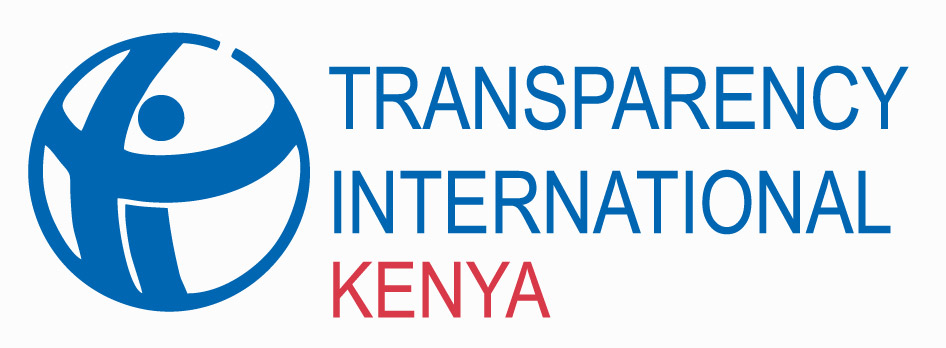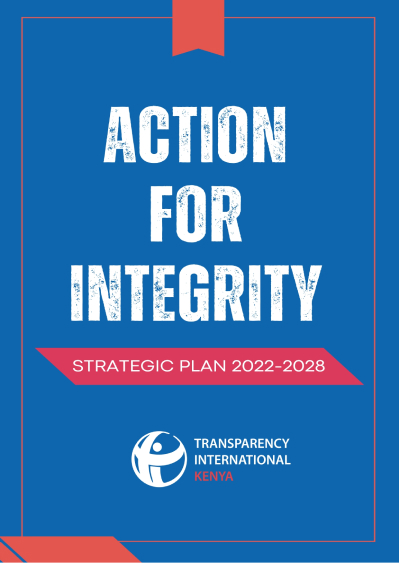Nairobi 22 February 2018: Kenya has made a dismal improvement in the fight against corruption according to a report released by Transparency International. According to the 2017 Global Perceptions Index, Kenya scored 28 points out of the possible 100, a slight improvement from 26 points in 2016 and 25 in 2015 However,the score is still lower than the combined average score for Africa which is 32.
The index, which ranks 180 countries and territories by their perceived levels of public sector corruption according to experts and businesspeople, uses a scale of zero to 100, where zero is highly corrupt and 100 is very clean. This year, the index found that more than two-thirds of countries scored below 50, with an average score of 43.
The release, which also marks the 25th anniversary for Transparency International reveals some disturbing information. Despite attempts to combat corruption around the world, the majority of countries are moving too slowly in their efforts. While stemming the tide against corruption takes time, in the last six years many countries have still made little to no progress.
Even more alarming, further analysis of the index results indicate that countries with the lowest protection for press and non-governmental organisations (NGOs) tend to have the worst rates of corruption. Coming at a time when Kenya has been in the news over the worsening media freedom, disregard for the rule of law and shrinking space for civil society, the results should be a wake up call for Kenyans to protect the civil liberties enshrined in the Constitution for the sake of the country’s prosperity.
Download the 2017 Corruption Perceptions Index
This year, there are no changes at the top and bottom with New Zealand and Denmark ranked highest with scores of 89 and 88 respectively while Syria, South Sudan and Somalia are the lowest with with scores of 14, 12 and 9 respectively similar to the 2016 . The best performing region is Western Europe with an average score of 66. The worst performing regions are Sub-Saharan Africa (average score 32) and Eastern Europe and Central Asia (average score 34). Botswana emerged the highest ranked country in Africa with a score of 61 followed by Rwanda with a score of 55.
Every week a Journalist is Killed in a Highly Corrupt Country
Analysis of the index results by Transparency International further examined the relationship between corruption levels, the protection of journalistic freedoms and engagement of civil society. It found that almost all journalists killed since 2012 were killed in corrupt prone countries.
“No activist or reporter should have to fear for their lives when speaking out against corruption,” said Patricia Moreira, managing director of Transparency International. “Given current crackdowns on both civil society and the media worldwide, we need to do more to protect those who speak up.”
The analysis, which incorporates data from the Committee to Protect Journalists, shows that in the last six years, more than 9 out of 10 journalists were killed in countries that score 45 or less on the Corruption Perceptions Index. This means that, on average, every week at least one journalist is killed in a country that is highly corrupt. In addition, one in five journalists that died were covering a story about corruption. Sadly, justice was never served in the majority of these cases.
The efforts of Transparency International and its first-hand experience working with more than 100 chapters worldwide confirm close linkages between corruption and freedom of the press. For example, in Brazil, which scored 37 on this year’s index, 20 journalists died in the last six years. Targeted for their investigations into local-government corruption and drug-related crime, among other issues, reporters in Brazil risk their lives everyday by simply doing their jobs.
Corruption Linked to Shrinking Space for Civil Society
Transparency International also looked at the relationship between corruption levels and the freedom with which civic organisations are able to operate and influence public policy. The analysis, which incorporates data from the World Justice Project, shows that most countries that score low for civil liberties also tend to score low for corruption.
“Smear campaigns, harassment, lawsuits and bureaucratic red tape are all tools used by certain governments in an effort to quiet those who drive anti-corruption efforts,” said Moreira. “We’re calling on those governments that hide behind restrictive laws to roll them back immediately and allow for greater civic participation.”
“The civic space in Kenya has come under much scrutiny in the recent past due to repeated attacks on the civil society. This is inimical to the fight against corruption and can only roll back any gains so far.” says Samuel Kimeu, the Executive Director for Transparency International Kenya. The legal framework for the sector has also been in a limbo due to failure to operationalize the Public Benefits Organizations Act, 2013 despite a court order being in place.
The release also comes in the wake of the recent court ruling that struck down unconstitutional amendments to the Public Audit Act that sought to establish an unconcstitutional body to exercise powers over the Auditor General. This is an important victory for Kenya’s fight for accountability as it safeguards the independence of the office of the Auditor General.
About Transparency International
Transparency International is the global civil society organisation leading the fight against corruption. Join our efforts at transparency.org The local chapter TI Kenya (www.tikenya.org) was established 18 years ago and has been in the forefront in the fight against corruption.
About the Corruptions Perceptions Index
Since its inception in 1995, the Corruption Perceptions Index, Transparency International’s flagship publication, is the leading global indicator of public sector corruption. The index offers an annual snapshot of the relative degree of corruption by ranking countries from all over the globe.
RESOURCES
- The Corruption Perception Index 2017
- CPI2017 Methodological Note
- Source Description
- FAQs
- Previous Perceptions Index
For more information, visit www.transparency.org/research/cpi


